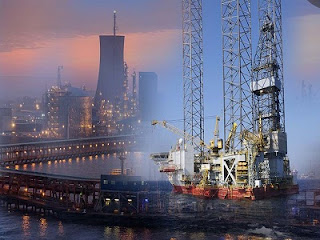The Mono Propylene Glycol (MPG) market prices have been subject to dynamic fluctuations in recent times, influenced by a myriad of factors that shape the global chemical industry. MPG, a versatile chemical compound extensively used in various applications such as pharmaceuticals, cosmetics, food, and industrial processes, has experienced notable shifts in pricing trends. One of the primary drivers impacting MPG prices is the demand-supply dynamics within the market. As industries continue to evolve, the need for MPG as a key ingredient in diverse manufacturing processes has surged, leading to a consistent demand that contributes to pricing adjustments.
Another pivotal factor influencing MPG market prices is the raw material costs associated with its production. MPG is typically derived from petrochemical feedstocks, and any fluctuations in the prices of these raw materials have a direct impact on the overall production costs of MPG. In recent times, the volatility in crude oil prices has played a significant role in shaping the pricing landscape of MPG. Additionally, geopolitical events and market uncertainties can further exacerbate these fluctuations, causing ripples across the MPG market.
Furthermore, regulatory changes and environmental considerations have become integral factors influencing MPG market prices. As governments worldwide are emphasizing sustainability and eco-friendly practices, the chemical industry is witnessing a paradigm shift towards greener alternatives. This shift has led to increased scrutiny and regulatory measures on certain chemical compounds, potentially impacting the demand and subsequently the prices of MPG. Manufacturers are adapting to these changes by investing in research and development to explore more sustainable production methods, which could further influence the overall pricing dynamics of MPG.
Get Real Time Prices of Mono Propylene Glycol (MPG): https://www.chemanalyst.com/Pricing-data/mono-propylene-glycol-1484
The global economic landscape also plays a crucial role in shaping the MPG market prices. Economic downturns or upswings can have a cascading effect on industries that utilize MPG, thereby impacting its demand and subsequently its pricing. The interconnected nature of the global economy means that events in one region can have far-reaching consequences on MPG prices across the world.
Moreover, technological advancements and innovations in production processes have the potential to impact MPG market prices. Efficiency gains and cost-saving measures in manufacturing can lead to more competitive pricing for MPG. As the industry continues to embrace technological advancements, it is likely to witness improvements in production efficiency, which could, in turn, influence the cost structure and pricing of MPG.
Supply chain disruptions, whether due to natural disasters, pandemics, or geopolitical tensions, can significantly impact MPG market prices. The interconnectedness of the global supply chain means that disruptions in one part of the world can create a domino effect, leading to supply shortages or surpluses that directly influence pricing trends.
In conclusion, the Mono Propylene Glycol (MPG) market prices are intricately linked to a multitude of factors that collectively shape the chemical industry’s landscape. From demand-supply dynamics to raw material costs, regulatory changes, economic fluctuations, technological innovations, and supply chain disruptions, each element contributes to the ebb and flow of MPG pricing. Industry stakeholders must remain vigilant and adaptable to navigate this complex environment, as the ongoing evolution of these factors will continue to impact MPG market prices in the foreseeable future.
Contact Us:
ChemAnalyst
GmbH – S-01, 2.floor, Subbelrather Straße,
15a Cologne, 50823, Germany
Call: +49-221-6505-8833
Email: sales@chemanalyst.com
Website: https://www.chemanalyst.com

